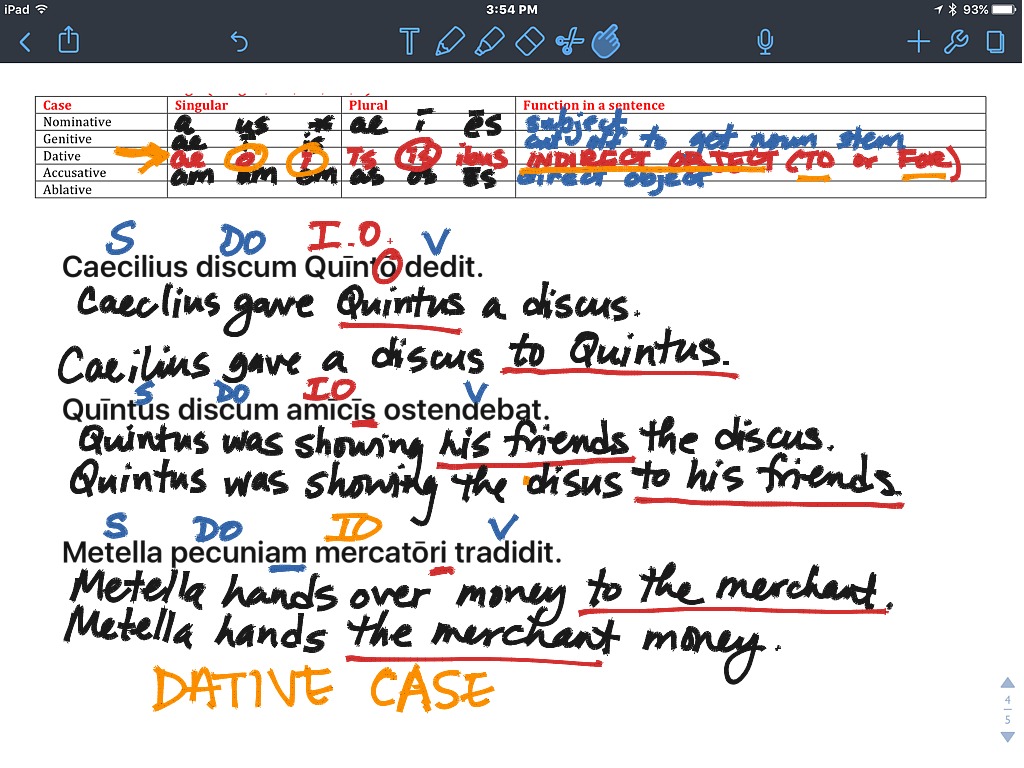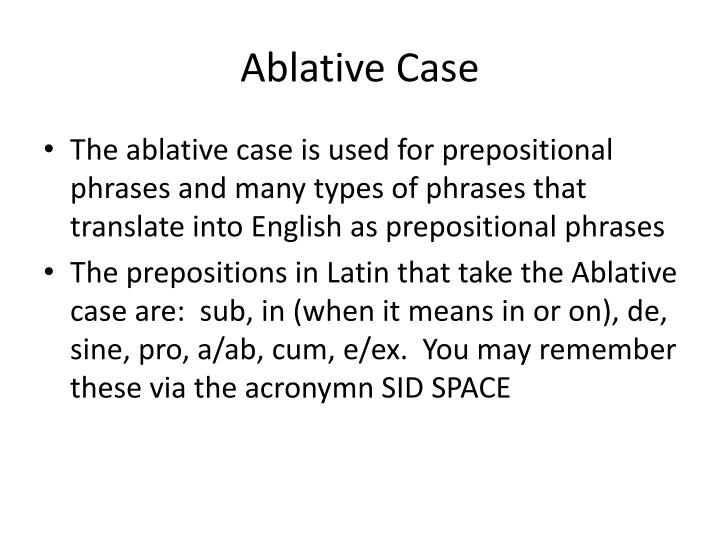

The locative case is not used with all nouns, and only specific nouns have it nearly all are place names or tangible locations like Roma (Rome) or Domus (house). This is often combined with an interjection like 'hey,' 'oh,' or 'ugh.' It is not used as frequently as some of the other cases. This case is used to call ( vocāre or 'to call') or address someone or something directly. The ablative is often preceded by a preposition like 'by' or 'with' that helps clarify what its function is in that instance. In general, it is used to limit or modify the verb with concepts like means (by or with), agent (whom), company (with whom), manner (with what or how), place (where or from where), and time (when). This case tends to be the 'catch-all case,' expressing many ideas. Notice that word order for dative case is quite different in Latin than it usually is in English.Īccusative case shows the direct object of the verb, or the person or thing being acted upon. This case marks the indirect object of a sentence in other words, it often references what the action was done to or for. (i.e., the student reads the boy's book.) English still has a form of this when we add the /'s/ or /s'/ at the end of a noun, like in " Mike's shoes." However, in Latin, this is best translated as "the shoes of Mike." Marcus et Albertus librōs antīquōs legent It is also used in equative sentences, which describe attributes of a given noun (see the last two examples). This is the most commonly used case and shows the subject of the sentence in other words, it shows who is doing the action. Each case gives the noun a specific role in the sentence.

These are called nominative, genitive, dative, accusative, ablative, vocative, and locative. In Latin, nouns can take six different cases, and some proper nouns can take a seventh.

For further help and paradigms, you can also visit Cactus 2000: Latin Nouns. For a more in-depth explanation of Latin grammar, Wheelock's Latin by Frederic M. Please note, however, that this is a brief introduction and may not cover all the different uses for the cases. This page is designed to be a basic guide to noun cases, different kinds of noun declensions, and pronouns. When working with Latin documents, it is essential to have a basic understanding of noun declensions and cases otherwise, it is very easy to misinterpret documents and get lost in sentences. Just as verbs conjugate, Latin nouns decline, and the different forms that the noun takes are called cases. Since Latin is a highly inflected language, nouns do a lot more 'work' than English nouns, and they are inflected to give the reader different clues as to what their role is in the sentence. In English, nouns are fairly straightforward for most nouns, to make them plural, you simply have to add an 's' to the end. Nouns, from the Latin nōmen or 'name,' are one of the fundamental parts of speech and give a 'name' for or identify common nouns, proper nouns, abstract, and concrete nouns.


 0 kommentar(er)
0 kommentar(er)
